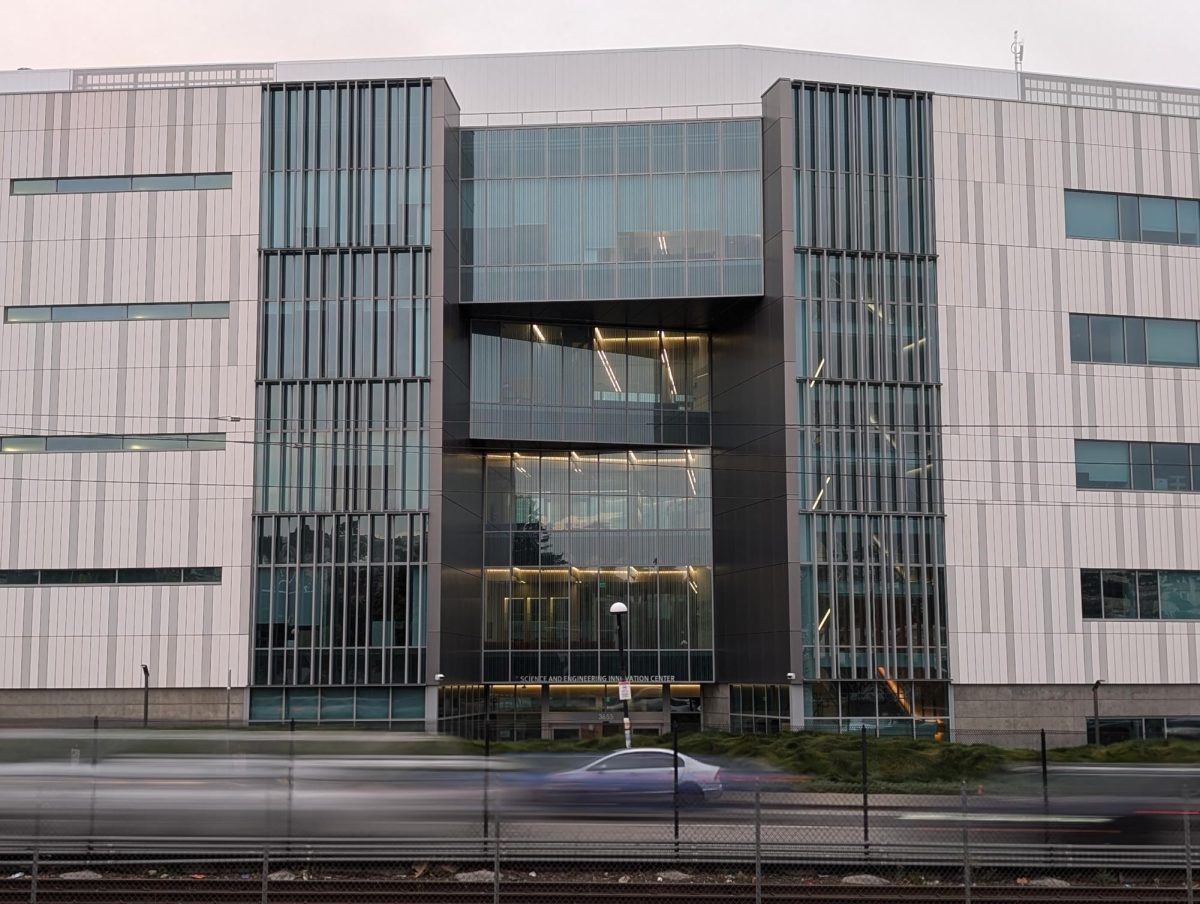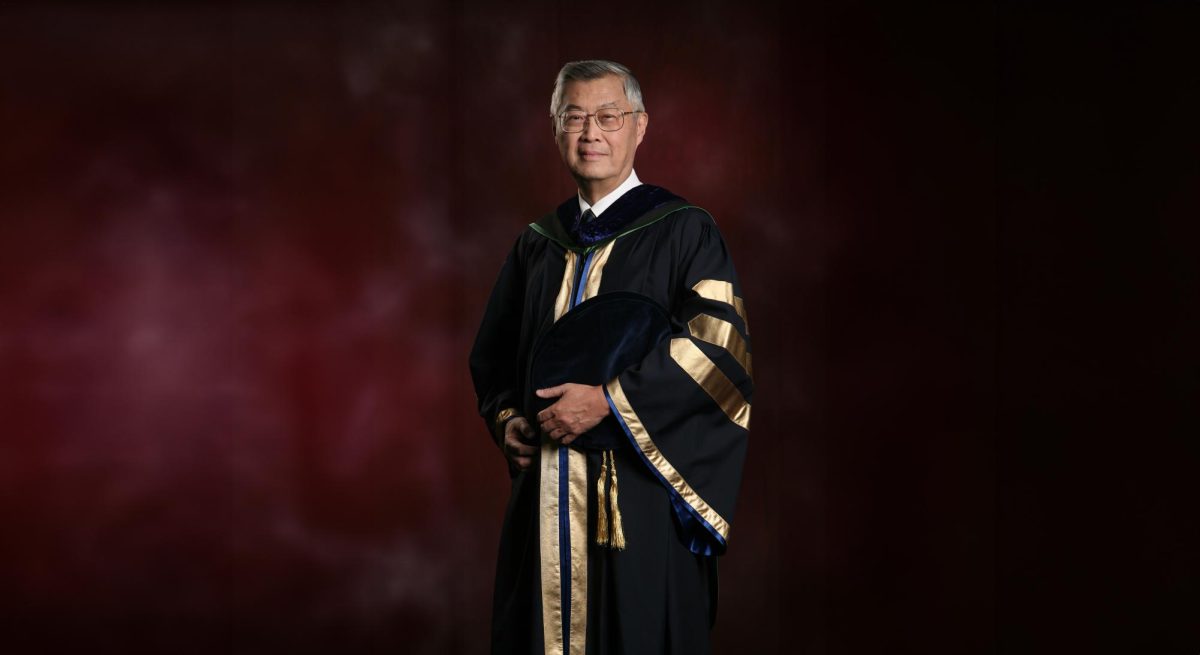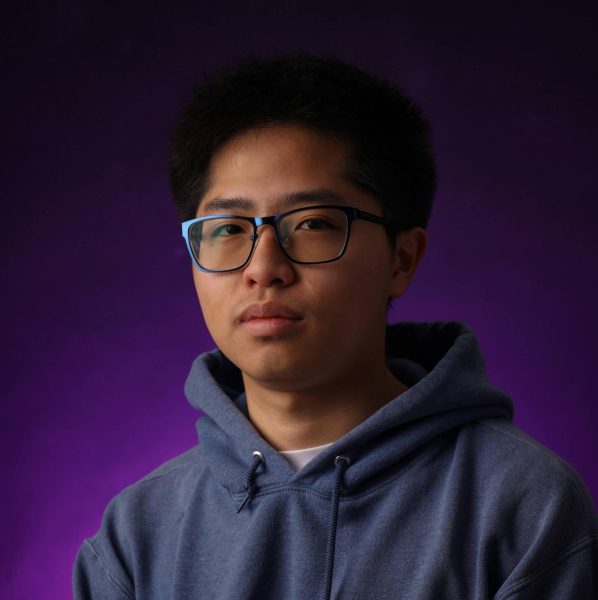Dear future San Francisco State University students,
It’s that time of the year again when people are thinking about college and working on applications. For some reason, you’re set on coming here when there are so many other options. It’s not the best university but it’s not the worst either. Here are some things you should know before you’re a student here.
Before you start, take a tour of the main campus if possible to learn where the buildings are and to get a sense of how it feels to be here. If you can’t do that, at least read the Wikipedia page or watch YouTube videos about what students experience.
Also, know how you’re going to pay for school. It would be awful if you were forced to drop out because you couldn’t afford to pay. If it’s going to be a struggle, it might be better to attend a community college instead and transfer later for the same degree at a lower cost.
Once you’re here, explore San Francisco. If your dream was to attend school in a big, notable city, then go immerse yourself here. There’s so much to see and do.
On campus, be curious and wander around when you can. For some reason, a lot of students end up staying in one or two buildings where their classes are and don’t know where everything else is. You need to wander around to discover the shortcuts, to know how long it takes you to get between places and to find out about interesting things. I found out about the Toshiko Mishima Memorial Tea Room because I walked around one afternoon and saw a door propped open.
Try to talk to your instructors. A study from 2015 shows that there’s a correlation between how often students interact with faculty and how engaged they are — students who are more engaged tend to have better learning outcomes. Most professors have time set aside every week for office hours and other instructors will usually be glad to schedule an appointment to meet with you.
Enroll in a diverse range of courses if you’re able to take them on your schedule. A lot of departments offer easy introductory courses. You need electives anyway, and lots of topics are related even if they don’t seem like it at first. Knowing about more things will make you a more well-rounded person and give you a deeper understanding of your field of study and the world because you’ll understand what themes are shared across topics.
Look at the courses offered by undergraduate students through the Experimental College. It’s the place to look if you want to learn something interesting or if you just need one more unit, whether it’s to meet international student requirements or meet other regulations.
Don’t buy textbooks before starting class, unless you can easily get a refund. You don’t know if your instructors will actually use them. Some instructors want you to have textbooks for reference that aren’t actually used for assignments. If you do need a textbook, remember that libraries exist. Check the university library and San Francisco’s public library system before spending money on a book you’ll probably acknowledge for only five months. Also, the library has a bookstore selling books for $2 or less with a small selection of textbooks.
Remember to fill out your FAFSA every year. If you’re an undocumented student, fill out the CADAA. Basically, the government probably has money to give and/or loan to you and all you need to do is fill out the extremely easy application, so why wouldn’t you? Even if you don’t think you’ll qualify for anything, the student aid report is needed for some scholarship applications.
Be aware that there are lots of scholarships available through SFSU and external providers. You should apply for scholarships even if you can already pay for tuition, fees, and school-related expenses because more money doesn’t hurt and some scholarships come with access to networking events, advising, and/or other perks. SFSU has its own scholarship portal but I also want you to be aware of Going Merry, a free website to find and apply to tons of scholarships, and 10,000 Degrees, a Bay Area-based organization that provides renewable scholarships and advising.
Another way to be financially stable is to try not to drive. Between the lack of parking, expensive gas, and the number of car crimes, owning a car in San Francisco is moronic. Car ownership in the United States costs over $12,000 per year on average, and definitely more in SF. Think about how much traveling you could do or how much you could buy with that money. Try public transit — your student ID allows you to ride for free on all the Clipper Card-using agencies. Also, many students and faculty skate, bike, ride scooters, and use other modes of transportation. For example, Jesse Garnier, journalism department chair, rides an electric unicycle.
Physical and mental health affects how well you can learn, so try to exercise when you can, whether that’s going to Mashouf Wellness Center or just walking around. To stay healthy, use Student Health Services (SHS) and Counseling and Psychological Services (CAPS) when you need them. These services are available at very low or no cost during your years here.
On the topic of health, remember to set aside time for yourself. Remember to eat, even when you’re really busy and overwhelmed.
For lunch, head to the Vista Room. It’s just $21 for a prix fixe meal that includes an appetizer, entree, dessert, and a drink with refills.
Consider looking off-campus for meals too. Parkmerced has a row of restaurants and Stonestown’s options aren’t bad. Steven Rissotto, former managing editor of Golden Gate Xpress, would sometimes walk fifteen minutes to purchase from Ike’s Sandwiches and walk fifteen more minutes to come back. By the way, some of Stonestown’s food businesses offer mall employee discounts and don’t check if you’re an employee.
Being a student gives you access to discounts at museums, restaurants, and other places. Always remember to ask about student discounts.
If you travel, use Skyscanner and Student Universe when looking for cheap flights and hotels. Skyscanner helps you find the absolute cheapest flights available on booking websites and Student Universe gives you access to substantial student discounts sometimes.
Think about studying abroad. If you’re going to live on campus or rent an apartment off campus, it’s likely cheaper to attend school in a foreign country.
Even if you’re not going to be an exchange student, try to travel alone in a foreign country if you can. Nothing is as invigorating and impactful as being in a completely different place by yourself. You’ll likely be between the ages of 17 and 25 when you start — your final years of brain development and your first years of real freedom. The ages you’ll be when you’re at SFSU are really your chance to push your limits and build your confidence.
Lastly, school can be exhausting sometimes. Having a trip booked far in advance gives you something to look forward to and to help you run away from school. Trips can be cheaper than you think.
Have a nice journey here.
Sincerely,
Neal Wong
P.S.
There are three other campuses and you should try to visit them if you can, just to know about them.









